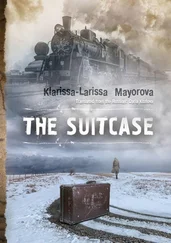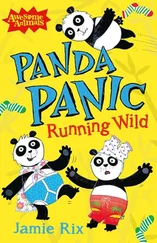Beware the tram at night when you’re walking a wee bit tipsy down the road, not realizing it’s behind you until at the last moment, when the horn blows and you manage to jump out of its way, realizing you almost died while the driver waves his fist in the window, though it’s his fault for not fixing the headlights.
Ask the taxi driver how much it will cost before getting in. Anyway, you’ll be overcharged.
Avoid the ritzy, snooty crowd on the Twelfth Fountain, but walk around there to see the houses.
Comb your hair, for God’s sake. Put on a nice dress and lipstick for Sanya’s wedding, and smile — after spending half your life taking care of those teeth, you may as well show them off.
Visit the Opera House. It’s the most beautiful in all of Europe.
Lie to only one person — the neighbor at the dacha, Galina Malatok. Tell her we’re millionaires living in a mansion on Park Avenue, sleeping on sheets made of gold fibers, et cetera. Try to impart the opposite impression on your cousin. What is basically the truth. Downplay, better yet don’t mention, all the traveling we do — certainly not a word about the Tuscany vacations. Stay away from Nadia — no one knows what she’s capable of.
Eat only in the center of town, and nothing with mushrooms.
Don’t get us souvenirs, don’t worry about us, we’re fine and want you to have a good time and just forget about us, but do get a calling card and call in the evenings — if not, we’ll call you.
SUMMERTIME IN ODESSA was rib cage convulsions, leaden handkerchiefs in pockets, motes of blood in phlegm. Dust consumed the city. The boundary between street and sky was obscured, turned street-to-sky spectrum. People with a cough graduated to a hacking cough, people with a hacking cough advanced to emphysema, those with emphysema hacked their last. It was the land of the ambiguous lung disease, a medley of symptoms that stumped doctors. At least there was always something to talk about, how last night the mucus turned from yellow to green but became less rock hard, how only the right nostril was affected, how it got worse on humid days and better, oddly enough, after a glass of cognac. Going from a wet to a dry cough was an occasion to raise a toast to, sleeping four hours straight a miracle. Then, of course, there was the neighbor with the cough, who put Pasha’s own throat clearing to shame. The neighbor’s cough shook paintings off walls. The chandelier over the bed began to sway at three in the morning. Every night Pasha was certain that by dawn he’d no longer have a neighbor, but the years passed and the neighbor held out. Daylight had an amnesiac quality. It made everyone optimistic.
Nadia had been a chilling nurse, but to be sick on Sveta’s watch was a pleasure. Pasha lay in bed propped up by pillows and Pushkin, wrapped in fabrics with scents ranging from feminine to outright female. Musky velvet, not death, was on Pasha’s mind. He was fifty-two. Plenty of doctors hadn’t expected him to get this far. Growing up, he’d been surrounded by people terrified of their bodies, people who thought, Well, that was a strange burp, must be something wrong with my large intestine, now it’s really the end; who listened to their bodies in the same way that Sveta, gripping the gutted armrests on their descent into Florence, had listened to the noise of the airplane — with absolutely no knowledge of aeronautics but the conviction that nothing operating correctly would sound like that. Multiple generations of Nasmertovs had gone into medicine to conquer a mystery — the gurgles, throbs, swells, and odors that without technical terms, case studies, textbook sterility grew to monstrous proportions and drove a person to madness. Both aunts on his father’s side had spent the last three decades of their lives incapacitated by hypochondria; his mother had gone through a germophobic spell that culminated in Pasha’s being taken out of second grade and kept home for a year. That year was almost worth it for the psychoanalytic juice squeezed from it later on. As a result Pasha resented close scrutiny of one’s physical climate. But in his last years of living on Potemkin Square — renamed, after a quick monument swap, Catherine the Great Square — he’d gotten into the habit of checking his pulse on the hour and listening to his lungs for the crackle of accumulating fluid. He’d lost the doomed fatalism that had been his shield.
A steaming bowl appeared on the nightstand, its deliverer dispersed in the vapors. Sveta’s fear was to overdote, her goal to be inconspicuous, better yet invisible. She resembled an impossible bird, one that had fallen out of its nest in infancy, landed on the tail of a dead wildcat (thus beginning a lifelong trend of disaster followed by odd luck, and occasionally vice versa), healed well but idiosyncratically, and been adopted into a family of squirrels not without their own issues. When Pasha caught sight of her, he watched in stunned admiration. Throughout his life Pasha had been starved for solitude, devising plans to keep Nadia occupied and out of the house. Sanya, too. How many times had he planted the seed for a hobby that required fresh air, multiple partners, immobile technologies? Now the opposite was true — Sveta left him alone too much, he was always calling for her. It was his own fault: all those years of complaining. He’d made a habit of unburdening himself to Sveta — how Nadia never left him in peace, asked questions with the sole intent of drawing him from his thoughts, interrogated him when he got home, went through his belongings, rearranged his papers, often not in search of anything, her entire mission being to frustrate Pasha and waste his time on a search. In those days it had taken a lot to disturb Pasha’s equanimity, but she was up to the challenge. Once she had thrown out (and not into the courtyard bin) his favorite, or most reached-for, books, filled with marks and jottings amassed by repeated readings.
Why would she do that? Sveta had asked, golden-feathered eyebrows twitching in horror.
For the same reason it enraged her when I sat too long at my desk or got mired in a project — Nadia’s a poet herself. Or she was. When we met, she was being hailed as the next Akhmatova.
What was she like then?
She was just nineteen at the time, but her poems were already emerging in the best journals, alongside the top names. Rumor had it that Yevtushenko was terribly smitten with her. He’d tried to woo her and been ruthlessly rejected. I was just getting involved in the samizdat scene. The top journals didn’t impress me. But of course I was intrigued.
For you, I would’ve rejected Pasternak, said Sveta.
Poor Pasternak, said Pasha.
How’d you meet?
We were introduced on New Year’s Eve in somebody’s freezing basement — icicles hung from the doorway, and the heating tube was encased in a block of ice. The Akhmatova comparison was hardly a stretch. It wasn’t just the similar neoclassical tendencies or preference for rigid forms in their verse. Like Akhmatova’s, Nadia’s face was as highly structured as her poems, as if sculpted from stone. Her nose even bore that lordly Asiatic bump. She was tall and thin, but with bones like Roman columns — an imposing presence. She had a deep voice and used it sparingly. Whenever she did, it was cause for celebration. I was ready to marry her right then and there.
She sounds just incredible, said Sveta, almost in a whimper.
It was only downhill from there.
The marriage turned sour how soon?
It took no time at all.
But Pasha, why?
Were women who sounded like children attracted to Pasha, or did Pasha encourage women to sound like children? Whichever it was, he indulged. Initially she liked me because I was her secret, he said. She regarded herself as a public figure and tried desperately to abide by a comprehensive list of what a public figure should and shouldn’t do. I was the Jewish kid who couldn’t grow facial hair and trailed her every step. She read my unpublished heaps and saw there was something there, but dissuaded me from showing the poems to others. I probably would’ve come out with a collection a lot sooner if it weren’t for her.
Читать дальше












